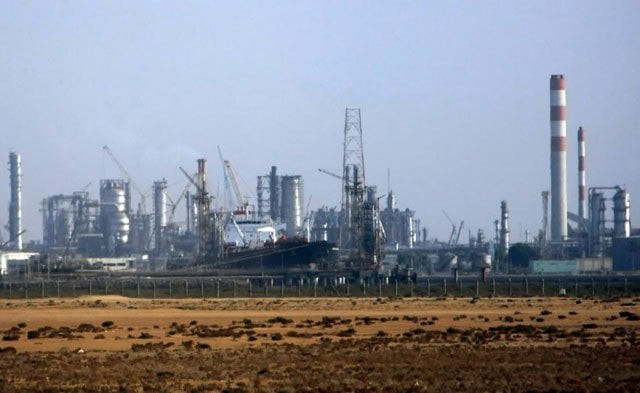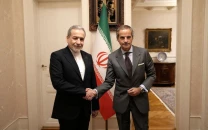Iran-Saudi crisis punches another hole in OPEC unity
The group has struggled with crude values that have tumbled some 60 percent since mid-2014

PHOTO: AFP
While it produces a third of the world's oil, the group has struggled with crude values that have tumbled some 60 percent since mid-2014, falling below $40 (37 euros).
Oil prices linger near seven-year lows
Crafting a new way forward has become yet tougher since Saudi Arabia executed prominent Shia cleric Nimr al-Nimr at the weekend, triggering a sectarian standoff with Iran.
"What's happening at the moment between Iran and Saudi Arabia makes searching for a compromise even more difficult," said Francis Perrin, president of Strategy and Energy Policy publications.
Gulf countries, led by top OPEC producer Saudi Arabia, refuse to cut production unless the oil-producing states that are not members of group agree to do the same. A cut would likely help prices climb.
Though the Saudis have thus far had their way, this unbending stance has been financially painful for the 13 OPEC nations, including Algeria, Venezuela and Nigeria, which draw most of their revenues from black gold.
For its part, Iran, the other pillar of OPEC, has no intention of curbing its production with the lifting of Western sanctions just on the horizon, which would allow it to resume crude oil exports.
"OPEC has no policy at the moment as it's everyone for themselves," said Ole Hansen, a Saxo Bank analyst.
"In the short term, there is no chance of an agreement within OPEC regarding production, and assuming there was some small chance, it has disappeared with the current crisis in relations between Saudi Arabia and Iran," said Pierre Terzian, head of the Petrostrategies weekly.
'Coming to blows'
In addition to their political and religious rivalries, the two Middle Eastern powerhouses are also clashing over their share of the oil market.
From Iran's perspective, "it would be fair" for other OPEC members, including Saudi Arabia, to "cut their production in 2016 to make some room (for Iran) without pushing prices down further," said Perrin.
However, in Riyadh "additional revenue means Iran will have a greater capacity to be a nuisance," in the region, Perrin added.
On top of that the kingdom, which has been overtaken in production by the United States, has not given a second's thought to cutting its output.
At the end of December Saudi Oil Minister Ali al-Naimi said "we no longer limit production. If there is demand, we will respond. We have the capacity to respond to demand", according to the Wall Street Journal.
Russian oil output hits record high despite price slump
Terzian said: "Clearly, that means Saudi Arabia is not going to let Iran increase its oil exports on its own... instead, it will also boost its own production."
Still, OPEC has survived previous conflicts among its members, notably during the 1980-1988 war between Iran and Iraq.
"The only place where Iranian and Iraqi leaders were able to see one another without coming to blows was at OPEC," said Perrin.
Christopher Dembik, a Saxo Bank analyst, sees a common interest between the two nations that may also be a stabilising force.
"They are both trying to recapture lost market share. They have a medium-term interest, at least, to keep prices low. Therefore they have no choice, but to agree, at least on this point."


















COMMENTS
Comments are moderated and generally will be posted if they are on-topic and not abusive.
For more information, please see our Comments FAQ